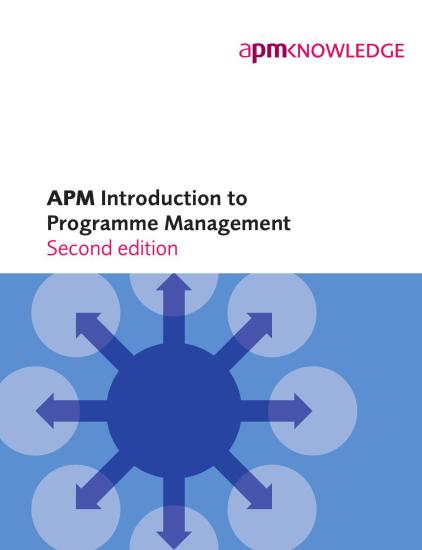Rating: Not rated
Tags: Project Management, APM, Lang:en
Summary
Nearly a decade ago, APM published APM Introduction to
Programme Management.
At that time I had just been appointed Chair of the
Olympic Delivery Authority charged with delivering the
London Olympics 2012: the question on many people’s
lips was “Does Britain have what it takes to deliver
such an ambitious programme given the perception of
performance on major public sector programmes?” The
answer is one more notch in the history of achievements
that this country can lay claim to.
The field of programme and project management is both
as old as time itself and also a young profession. When I
started my career, project management was ‘just a
part of’ whatever profession you happened to be in
– too often with inglorious consequences for delivery
that have lodged in the perceptions of many. Times have
changed and now professionalism in project management has
made successful delivery the expected norm.
Recognition that programme management is much more
than ‘just big project management’ is a
relatively recent concept. The success of the London 2012
Olympics, and the ‘Learning Legacy’ shared with
the world, has stimulated interest and progress in this
field, most recently exemplified on Crossrail. These
programmes are not so much a pinnacle of success as the
beginning of the greatest proposed investment in
infrastructure ever seen in this country. The National
Infrastructure Plan sees a forward portfolio of work that
will challenge our global skills to deliver – a
challenge we must rise to if we are to achieve the growth
and prosperity we owe to those who follow us.
While my career has been predominantly in
infrastructure, the world of programme management stretches
way beyond these limiting boundaries. Wherever change is
required to deliver benefits to an organisation or society,
there you will find a demand for programme management
skills to realise the outcomes sought rather than simply
deliver constituent project outputs that do not quite
achieve expectations.
One can see, in the worlds of IT and defence, examples
beyond infrastructure of both success and failure at
programme level that build on successful project delivery.
This update to APM Introduction to Programme Management
brings new insights as to what programme management is all
about. It is an ‘easy read’ for the top
executives, for those relatively new to programme
management who have a thirst for knowledge and for the
project management community who should, and need to,
understand how their project management skills play into
the ‘bigger picture’. To all of you, in
whatever field you practise your profession, you owe it to
your clients, your successors and yourselves to make sure
your work delivers the outcomes society expects from you;
understanding the programme management context in which you
operate will help you achieve this.
Sir John
Armitt
